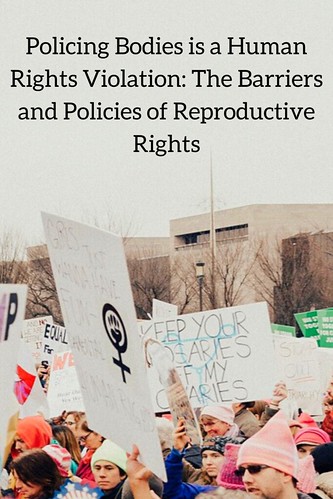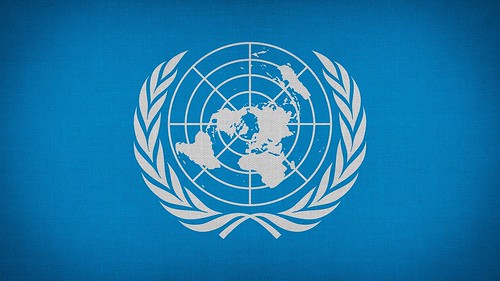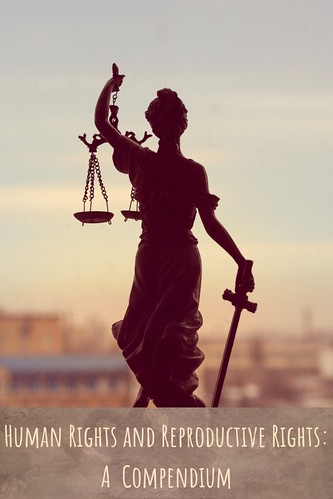Today, three months after the United States Government overturned Roe V Wade (which simultaneously overturned 50 years of legal protection for the right to an abortion in America), the global conversation surrounding reproductive rights remains both important and divisive.
Americans now join a staggering 1,070 million people worldwide who face national institutionalised barriers to their reproductive rights.
This article will focus on an overview of what reproductive rights are—and why they are vital human rights. I will then discuss how reproductive rights can be violated, and what impact this has on those victimised by their absence. I will also highlight the important role they play to save lives, how these roles are protected, and why reproductive rights deserve to be protected.

What are reproductive rights, and why is their violation a human rights issue?
Whilst reproductive rights are commonly minimised to focus on abortion rights alone, and are viewed with the stigma of being shameful, the reality is that almost everyone exercises their reproductive rights on a daily basis.
Reproductive rights are individual rights that are exercised by anyone with the ability to reproduce; they’re exercised when you choose to use condoms, by anyone who takes the pill, and by people receiving fertility treatments.
A key aspect of reproductive rights being a human right is that both men and women exercise and enjoy the freedoms provided by them. Everyone should have the ability to make informed choices, have access to the information necessary to make these choices, and fully understand the reproductive processes of their own bodies.
Reproductive rights include the legal right to contraception, fertility treatments, family planning services, abortion, sexual reproductive health screenings, and most importantly, access to accurate information about these topics.

Reproductive rights as human rights
With foundations in economic, social, and cultural freedoms, reproductive rights are grounded on the right to life, the right to education, the right to health, the right to privacy, bodily autonomy, and the right to make informed decisions about your body.
These concepts are all protected within various treaties, such as the United Nations Declaration of Human Rights and the Committee on the Elimination of Discrimination Against Women. Despite this, there are many common violations to reproductive rights, including:
● Denying access to services physically, legally, or through technology. This applies to accessing reproductive health care, specialists, treatments, having reliable information provided to you both in person and online, and having the choice to use these services without coercion
● Providing poor quality services
● Access to services being conditional by a third party
● Forcing individuals into procedures such as examination, sterilisation, abortion, etc.
● Female Genital mutilation (FGM)
● Underage marriage
What happens if these human rights are violated?
These violations noted above, as well as many others, rob individuals of their rights to make decisions independently and free from coercion. These violations are an attack on the equality, independence, and humanity of a person.
When victims of such violations do not have access to information, services, or are being coerced by an outside force, their autonomy is forcibly taken from them. In many cases, their childhoods, lives, or futures are also lost..
For example, every minute, 23 girls under the age of 18 are forced into marriage. As a result, many young people must end their education prematurely, cutting short the chance to learn skills, gain knowledge, and build connections through which they can secure a job. This leaves young people vulnerable and trapped in potentially violent marriages with little to no route of escape.
Furthermore, violations of a person’s reproductive human rights creates an environment in which bodies are commodified—and in which lives are lost. Statistics from the Guttmacher Institute show that abortion rates vary little between countries that legally permit abortion and those that don’t, confirming the fact that you cannot ban abortion, you can only ban safe abortion. These unsafe practices make up for almost half the abortions performed globally, with over 23,000 women dying per year as a consequence.

Legal barriers to reproductive human rights
Sadly, despite the well-known impact of human rights violations and the fact that all 193 United Nations member countries have ratified treaties that protect reproductive rights, there is slow but prevalent backslide towards increasing legal restrictions.
Two such examples of this are the recently overturned ‘Roe V Wade’ verdict by the Supreme Court in the US in 2022, and the amendments made to the Polish ‘Family Planning, Human Embryo Protection and Conditions of Permissibility of Abortion Act 1993’ in 2020. Both legal amendments are based on the grounds that they are incompatible with the countries’ constitutions, both were heavily protested against, and both significantly violate the reproductive rights of their citizens.
For Americans, there is a variation between states to what extent reproductive rights are legally restricted, ranging from legal to illegal without any exceptions for rape and incest. In Poland, the only grounds for safe abortion are if the mother’s health is in danger or the pregnancy is the result of a criminal act.
There can be no mistaking the disconnect between the promises made by both countries to protect human rights and the reality of the legal barriers against human rights they have built. Policing bodies is a human rights violation—with no exceptions—and full reproductive rights are vital in realising full individual self-determination.

Why is reproductive health so important?
Reproductive health encompasses not only childbirth and treating diseases, but also establishes a state of physical, emotional, and mental wellbeing in all areas that relate to the reproductive system, so that people can achieve fulfilling lives. Thankfully, there are many organisations that continuously work to protect and further reproductive rights.
Codified policies protecting reproductive human rights
Globally, legally enforceable policies for reproductive health can be imposed through the International Covenant on Economic, Social, and Cultural Rights (CESCR) and the Convention on the Elimination of All Forms of Discrimination against Women (CEDAW).Under the governance of the United Nations, both committees employ a number of independent experts to monitor and further the implementation of reproductive freedoms. Significant articles include:
CESCR Article 3
The States Parties to the present Covenant undertake to ensure the equal right of men and women to the enjoyment of all economic, social, and cultural rights set forth in the present Covenant.
CEDAW Article 14, 2.(b)
To have access to adequate health care facilities, including information, counselling, and services in family planning
Article 16, 1.(e)
The same rights to decide freely and responsibly on the number and spacing of their children and to have access to the information, education and means to enable them to exercise these rights
Let’s discuss these.
CESCR article 3 ensures that all people are legally entitled to access and services in all areas of society, with the addition that special measures may be taken for this threshold to be met by women, as is often the case for reproductive health. As reproductive services are often deliberately kept from young people and women, the article significantly tackles discriminatory practices and enhances access to education and bodily autonomy.
Similarly, CEDAW articles 14 2.(b) and 16, 1.(e) directly relate to the importance of reproductive access and facilities as vital human rights. Positively, over 50 countries have moved to liberalise their reproductive laws in the past 25 years, giving hope that the overwhelming majority of nations support reproductive freedoms.
In addition to policies of protection, reproductive rights are championed by non-profit organisations worldwide. Examples such as Planned Parenthood, which operates over 600 health centers across the US, and Plan International, which provides care in more than 75 countries, give reassurance that all people, regardless of their situation, will have reliable access to information, contraception, safe medical facilities, and dignified support systems.

Reproductive rights are crucial to saving lives, protecting dignity, and securing positive futures. This fall, I am writing a series of articles that will look to further understand reproductive rights, including expanding the narrative surrounding reproductive health, the ideologies of lawmakers, and the barriers constructed to limit their fulfilment.
To learn more or to access reproductive health services:
(USA) Planned Parenthood 1-800-230-7526 https://www.plannedparenthood.org
(UK) https://www.nhs.uk/nhs-services/sexual-health-services/guide-to-sexual-health-services/
(Global) https://plan-international.org

Please click the photo below for a compendium of my Human Rights and Reproductive Rights columns:
Emma Fitzsimmons is the Human Rights and Reproductive Rights Editor at Wandering Educators. Motivated by the desire to make a positive impact in the world, she recently completed a masters degree in Human Rights and Diplomacy. She is very passionate about reproductive rights and the equality of all people.

